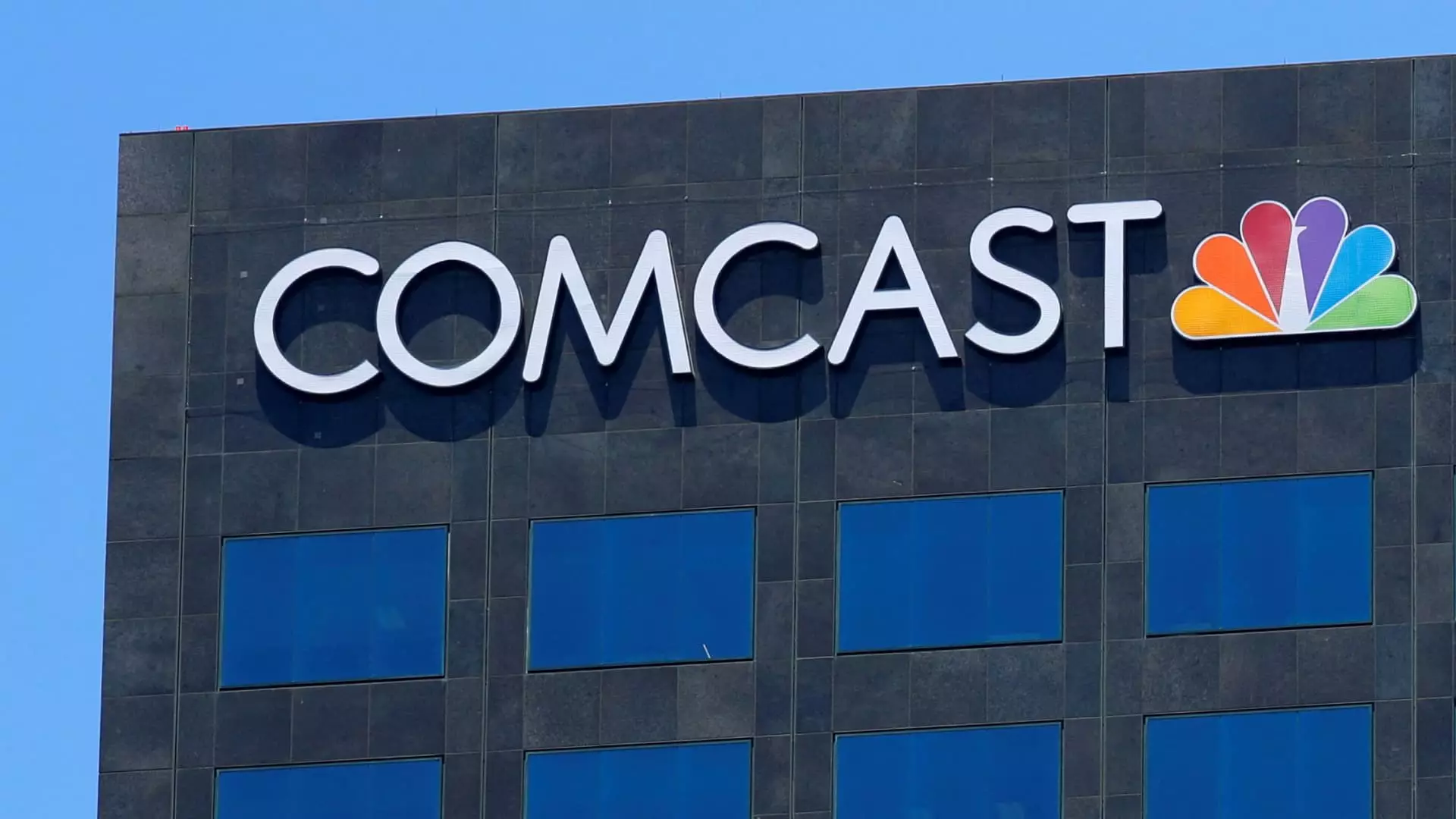In a significant move that signifies a departure from traditional media structures, Comcast is moving ahead with the planned spinoff of its cable network channels. According to inside sources, this transition will unfold over the next year and an official announcement could be on the horizon shortly, perhaps as soon as Wednesday. The decision arises within the context of an industry grappling with seismic changes as viewer preferences evolve rapidly towards streaming services and on-demand content. This spinoff is poised not just as a corporate maneuver, but as an adaptive strategy in a landscape that demands innovation and flexibility from all players involved.
Mark Lazarus, the existing chairman of NBCUniversal’s media group, has been named as the leader of the forthcoming independent entity. His appointment reflects an intention to maintain experienced oversight as Comcast ventures into this new chapter. Alongside him, Anand Kini, the Chief Financial Officer of NBCUniversal, will take on the dual role of CFO and operational chief once the new organization is established. The centralization of leadership from established figures may offer stability amidst the uncertainty associated with spinoffs.
Interestingly, Comcast’s Chairman and CEO, Brian Roberts will retain a voting position within the new company, although he will step back from any formal officer roles and the board. This nuanced separation might assure stakeholders of continuity while also presenting opportunities for the company to evolve independently. The structure of this new entity is to mirror Comcast’s, which means shareholders could expect familiar financial dynamics even as the operations diversify.
One of the alluring prospects of this spinoff is the strategic flexibility it affords. By disentangling its cable networks, Comcast is potentially opening the door for future mergers or even acquisition by private equity firms. This restructuring may provide enhanced agility to respond to the pressures of the industry, particularly as millions abandon traditional cable subscriptions in favor of digital content providers. The move signals a corporate acknowledgment of ongoing shifts in media consumption, prompting distinct pathways for traditional networks that are adapting to modern demands.
Part of this strategic reorganization includes noteworthy appointments within NBCUniversal’s ecosystem. Donna Langley is set to lead NBCUniversal Entertainment and Studios, while Matt Strauss will head NBCUniversal Media Group. These leadership choices indicate a commitment to making content the priority in a time of shifting viewership habits. Notably, certain networks, such as Bravo, will remain with Comcast, pointing to a selective strategy that preserves valuable properties in the streaming landscape.
Despite the wave of customers migrating away from traditional pay-TV, it is critical to acknowledge that cable networks still represent substantial revenue sources for media companies. In an earnings report released in October, Comcast’s media segment experienced almost a 37% revenue increase, primarily influenced by the Olympics—a key event that served to bolster viewership and advertisers’ interest. Without such significant events, revenue growth remains modest but indicative of the resilience of traditional networks in a volatile market.
While the spinoff is aimed at optimizing performance and capitalizing on Pent-up market potential, significant logistical questions remain regarding the future of licensing agreements, particularly those of MSNBC, CNBC, and their ties to NBC News. These critical discussions have yet to commence but will be crucial in establishing operational efficiency and coherence within the newly formed entity.
The impending spinoff marks a pivotal moment in Comcast’s corporate strategy, reflective of broader trends within the media industry. As it steps forward into this new structure, the company is not just shifting financial assets; it’s redefining its approach to a fast-evolving consumer landscape. The intersecting dynamics of viewership behaviors, technological advancements, and strategic leadership will all play roles in determining the long-term success of this separation. Comcast’s ability to navigate these changes effectively could ultimately set a precedent within the industry, signaling how legacy media companies might pioneer paths into the age of digital consumption.


Leave a Reply